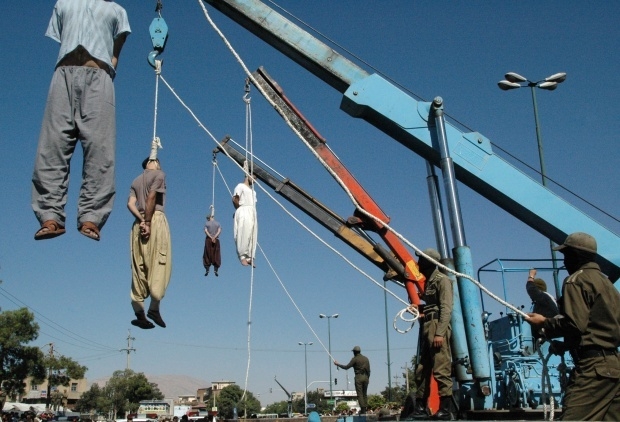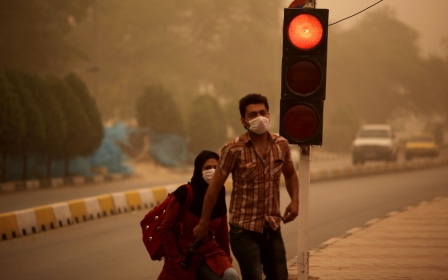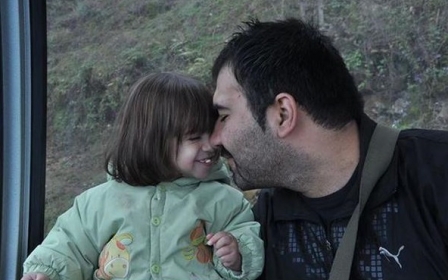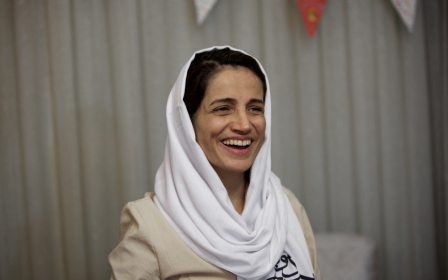UN report details Iran human rights violations

The United Nations is "deeply troubled" by the continuing large number of executions in Iran, including of political prisoners and juveniles, according to the annual report of the international body on Tehran's human rights record.
At least 500 people were executed in Iran between January and November 2014, according to the report from the office of Secretary-General Ban Ki-moon to the UN Human Rights Council.
Some suspects were allegedly tortured and had no access to lawyers as they faced the death penalty for crimes such as "corruption on earth" and "enmity against God".
The report also noted "high incidence" of public executions, the majority of which were "reportedly attended by a large crowd, including minors."
Iran was reminded of its obligation under international human rights law, which prohibits the execution of juvenile offenders.
"At least 160 juvenile offenders were reportedly on death row as at December 2014," while eight individuals "below the age of 18 at the time of their offence were reportedly executed in 2014."
The UN report noted that "in the majority of cases that involve capital punishment, due process guarantees were often violated in proceedings that fell short of international fair trial standards," while expressing concern "about a number of death penalty cases with a political dimension."
Child marriages and laws restricting women
According to the report, child marriage "remains prevalent" in the country, where the "legal age of marriage for girls is only 13, and some as young as nine years of age may be married with the permission of the court."
"In 2011, about 48,580 girls between the age of 10 and 14 were married; and in 2012, there were at least 1,537 girls under the age of 10 who were reportedly married."
The report also drew attention to the plight of women in Iran, where 66 per cent of whom "had reportedly experienced domestic violence."
"According to article 1117 of the Civil Code, a husband may prevent his wife from occupations or technical work deemed incompatible with family interests or his own dignity or that of his wife. The law may even prevent women from pursuing artistic activities."
Iran was also criticised for its gender-discriminatory nationality laws, where "Iranian women who marry men from Iraq or Afghanistan are unable to pass on their Iranian nationality to their children, who thereby risk becoming stateless."
The report also noted that women who appear without hijab risk arrest and imprisonment of between 10 days and two months, or a fine.
"Approximately 30,000 women were reportedly arrested between 2003 and 2013, with many others subjected to expulsion from university or banned from entering public spaces, such as parks, cinemas, sport facilities, airports and beaches."
Crackdown on media, rights campaigners
The UN report decried Tehran's blocking of some five million websites, amid "ongoing monitoring, filtering and blocking of websites that carry political news and analysis raise great concern."
"Individuals who have expressed their views on social media or appeared in videos have been targeted and prosecuted," amid the "continued crackdown on media professionals, the pervasive restrictions on freedom of opinion and expression, including the closure of newspapers and magazines."
Iranian security forces were criticised for reportedly beating protestors who had gathered in front of parliament on October 2014 to denounce recent acid attacks against women for allegedly wearing improper hijab.
"Journalists and activists were detained, including members of the Iran Student News Agency, who were reportedly interviewing victims and photographing the protest."
Human rights campaigners were also reportedly being targeted by the Iranian authorities, as the report noted a "shrinking space for human rights defenders, who continue to risk harassment, intimidation, arrest and prosecution for defending rights and speaking up against violations and abuse."
Some of them were sentenced to prison terms ranging from six months to more than 20 years, while "one individual was sentenced to 50 lashes, and another to death. Many of the trials had been marred by procedural irregularities, including deprivation of legal representation and exclusion from attending one’s own sentencing."
Abuse of religious and ethnic minorities
The UN expressed concern at reports about the situation of religious and ethnic minorities in Iran.
"Members of ethnic and religious minority groups continue to face persecution, including arrest and imprisonment, the denial of economic opportunities, expulsion from educational institutions, deprivation of the right to work, and closure of businesses and the destruction of religious sites, such as cemeteries and prayer centres. Individuals seeking greater recognition for their cultural and linguistic rights risk facing harsh penalties, including capital punishment."
However, the report said Iran was cooperating more on UN human rights treaties and that Tehran had invited UN High Commissioner Zeid Raad Al-Hussein to visit, welcoming such positive steps.
"The Secretary-General welcomes the achievements that the state has made in the field of women’s education and health, and notes the emphasis placed on gender equality by the President of the Islamic Republic of Iran, Hassan Rouhani."
Middle East Eye propose une couverture et une analyse indépendantes et incomparables du Moyen-Orient, de l’Afrique du Nord et d’autres régions du monde. Pour en savoir plus sur la reprise de ce contenu et les frais qui s’appliquent, veuillez remplir ce formulaire [en anglais]. Pour en savoir plus sur MEE, cliquez ici [en anglais].





